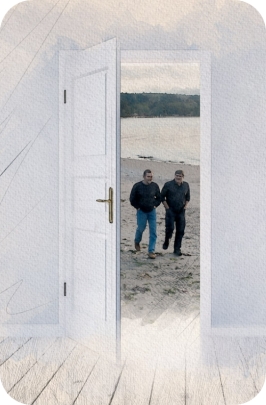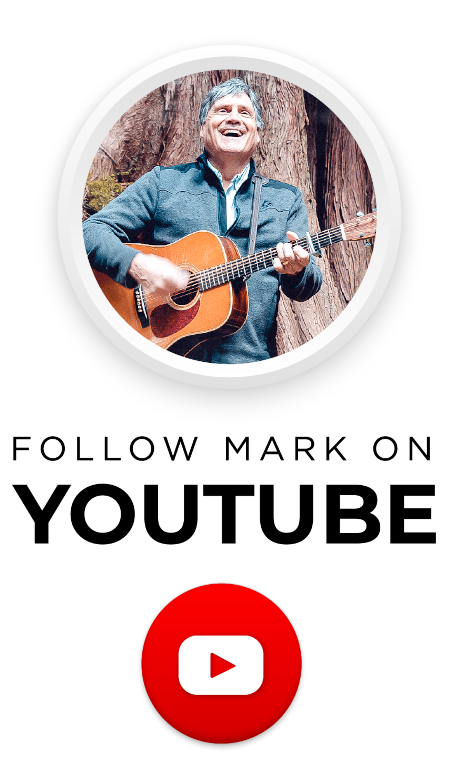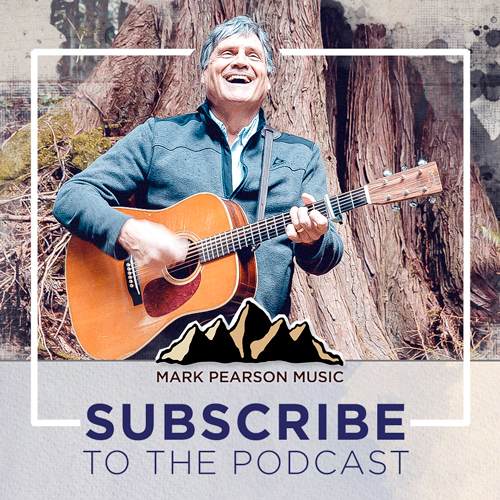A LIFETIME LOVE AFFAIR
So I go through the seasons I work I sleep and I play
Easy friends all around me to smile at the things I say
But I don’t know I’d like to leave it all behind
Every time you come rolling back in my mind
Can you catch a bird as she flies can you steal the sun from the golden sky
Chorus
Ano Subarashii ai o moichido
Ano Subarashii ai o moichido
That’s the last verse and chorus of The Brothers Four singing Ano Subarashii ai o moichido with English lyrics by Bob Flick. A love affair that began more than 60 years ago between The Brothers Four and the country and the people of Japan continues to this day.
Dear Partner,
Being in The Brothers Four has brought and continues to bring so much to our lives. An opportunity to travel all over this country as well as significant parts of the world. The chance to stand shoulder to shoulder on countless stages. Sing with a couple of guys who feel like family for audiences who often think of us as friends. That may be especially true in Japan where there is an official Brothers Four Friends Club formed sixty years ago by young kids who grew up and are now growing old singing and loving Brothers Four songs and The Brothers Four, through the many changes in the group and all of our lives.
Once there were Greenfields kissed by the sun
Once there were valleys where rivers used to run
Once there were blue skies with white clouds high above
Once they were part of an everlasting love
We were the lovers who strode through Greenfields
That recording is a wonderful example of a most sincere and heartfelt form of flattery. The bonds of affection strong and mutual. Over the years Japanese promotors have printed programs as part of concert tours. One year they asked each of us for a personal thought about Japan. I told them that visiting Japan is like going on a great adventure and at the same time like coming home.
A few years ago we were signing CD’s and programs after a show when a man came up and quietly brought us all to tears. “Because of The Brothers Four. I learned English.” he began. Kids often listened over and over to Brothers Four songs while studying the English lyrics printed along with the Japanese translations on record jackets. “Because I learned English,” he continued, “I did well in school. Because I did well in school I went to a good university. Because I went to a good university I got a good job. Because I got a good job I met my friends. Because I met my friends I met my wife. Because I met my wife I have my kids. Because I have my kids I have my life. Because of The Brothers Four.”
In December of 1991, the month of the 50th anniversary of Pearl Harbor, the Brothers Four were in Kyoto providing the music for what was billed as a Grass Roots Summit, celebrating the 150th anniversary of the beginning of US/Japanese relations. A highlight for me. A year later the Grass Roots Summit met again, this time in the US. Pat came and we invited my parents to join us. A great friend of the group came up to my mother and explained that for years he’d been singing in a group where each member plays the role of one of The Brothers Four. My mother asked, “Which one are you?” He put his arm around her and said, “Why, Mrs. Pearson, I’m your son.” For years I carried regards to Yamakawa-san from my mother and to my mom from him. He reached out to me not long after she died to tell me how sorry he was.
Those of us born in the US after World War Two grew up as the children of what became known as the Greatest Generation. At school we participated in duck and cover drills so we’d be ready in case we ever faced a devastating nuclear attack. Kids born in Japan after World War Two grew up as children of the only generation in their history to ever be defeated in war. The kids learned in school what it’s like to be the only country on earth to have cities and the people in them devastated, incinerated, when attacked by nuclear weapons. As one might expect those kids often looked elsewhere for heroes. To the surprise of the guys in the group a number of them chose the Brothers Four to be among those heroes who over time would become friends. And you and I, McCoy, continue to be beneficiaries of that lifetime love affair.
The Brothers Four helped introduce Japan to the world of Hootenannies and sing-alongs. I must say Japan reciprocated in a big way. They introduced Karaoke to the world.
It’s important to add here that an essential part of the group’s success is Bob Flick continuing to work tirelessly behind the scenes to keep the music out there and the audiences engaged. And the group gladly returning to Japan year after year.
We love coming back because we’re treated so well. Everything first class. The travel, the hotels, the meals, the venues. The crew that travels with us making sure the sound, the lights, the stage sets are just right. A bit different for us than touring in the States. It’s fun that Connie’s been able to have that experience. Pat’s come a number of times. Jodie and Lindsey have come as well.
In the years since you joined we’ve also done New Years’ shows in Taiwan, concerts in Hong Kong, sang a peace concert near the DMZ, were hosted for a special week of shows and sightseeing in Thailand.
Your becoming part of the group meant there was someone else who enjoys going out and exploring as much as I do. When we added Karl that made three of us. Our routine often includes talking over breakfast about where we might go later that morning. Meeting in the lobby with backpacks, snacks, bottles of water, and guidebooks. Often finding ourselves somewhere somehow lost in translation before finding our way back to the hotel in plenty of time to get ready for that evening’s show. A day off can mean venturing farther out and staying out longer.
We’ve had more amazing experiences than I could list or count. Walking around the Imperial Palace and Hibiya Park on a Sunday afternoon. Visiting the Meiji Shrine when the irises are in bloom. Riding the White Star Ferry in Hong Kong harbor. Walking through the Night Market in Taipei. Cruising the river as night fell and the lights of Bangkok came on as the house band sang Greenfields . Visiting rows of vendors on the way to the shrine in Asakusa. Singing in the Japanese Alps as the snow fell outside. Walking from the hotel to Osaka Castle in the morning and then again after dark. Singing with Mt Fuji behind us. Strolling Odori Park in Sapporo. Eating street food one night the next at the Hama Steakhouse hosted by our promotor. Visiting the Peace Park in Hiroshima late one afternoon then going on stage and listening as you dedicated Where Have All the Flowers Gone to the dream of a world free from war. Just a few of the memories strung together, part of an amazing and growing tapestry of experiences. Memories connected to so many nights sharing our music, in some cases to people who may not have understood the words, but love how those songs make them feel. Make all of us feel. Shows often end with each of us receiving a bouquet of flowers.
Writing this reminds me yet again how much Japan has meant to The Brothers Four and how much singing together in The Brothers Four has meant to yours and my musical journey. In both cases a sense of overwhelming gratitude.
The older I get the more convinced I become that life is about love. That life is love. The search for it. The finding of it. The loss of it. Regaining it. The giving and receiving of it. The being open to it or closed from it. The fear of it. The running from it. The embracing of it. How different life looks when we have faith in it. How bleak when we don’t. How the hardest person in the world to love can be ourselves.
There was never a doubt you could sing all the right notes and blend in beautifully as a member of The Brothers Four. Because I often thought of you as growing up more in the mold of Bob Seger than Pete Seeger the only question I had was how much affection you had, how much love, for the songs The Brothers Four sing. It didn’t take long to figure out the answer was a lot. Because all four of us feel that way by the end of a performance that affection is clear to the audience. It might be a small thing, perhaps, but one that I believe makes a big difference.
Ending this letter with The Brothers Four singing a song about what can happen when a child’s faith is joined together with a parent’s love. It’s clear as you sing the verses that you still have your childlike faith, and you still believe in miracles.
I peeked in to say good night
When I heard my child in prayer
And for me some scarlet ribbons
Scarlet ribbons for my hair
All the stores were closed and shuttered
All the streets were dark and bare
In our town no scarlet ribbons
Not one ribbon for her hair
Through the night my heart was aching
Just before the dawn was breaking
I peeked in and on her bed
In gay profusion lying there
Lovely ribbons scarlet ribbons
Scarlet ribbons for her hair
If I live to be a hundred
I will never know from where
Came those lovely scarlet ribbons
Scarlet ribbons for her hair



